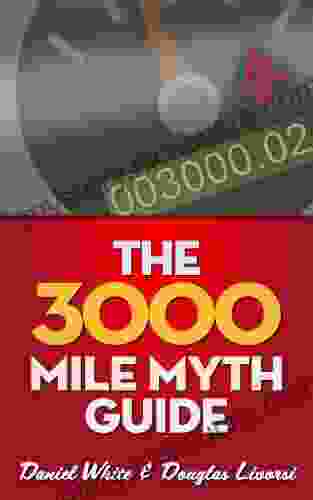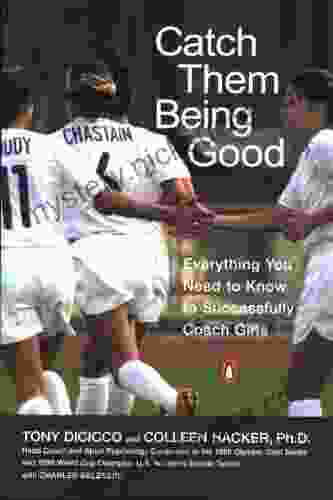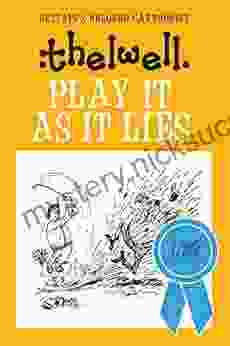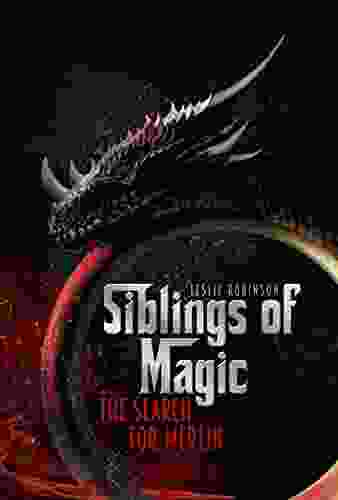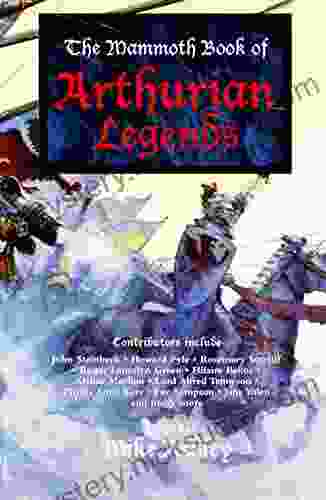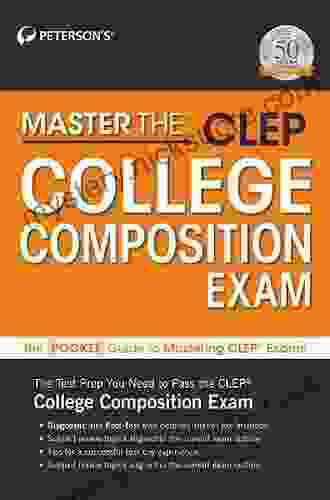The 3000 Mile Myth: A Guide to a More Realistic Approach to Distance Running

The 3000 mile myth is a common belief among distance runners that they need to run at least 3000 miles per year to be successful. This belief is based on the idea that the more miles you run, the faster and more endurance you will build. However, research has shown that this is not necessarily true.
5 out of 5
| Language | : | English |
| File size | : | 5133 KB |
| Text-to-Speech | : | Enabled |
| Enhanced typesetting | : | Enabled |
| Word Wise | : | Enabled |
| Print length | : | 46 pages |
| Lending | : | Enabled |
| Screen Reader | : | Supported |
| Paperback | : | 172 pages |
| Item Weight | : | 10.2 ounces |
| Dimensions | : | 5.83 x 0.43 x 8.27 inches |
In fact, running too many miles can actually be detrimental to your performance. It can lead to injuries, burnout, and a decrease in motivation. A more realistic approach to distance running is to focus on quality over quantity. This means running fewer miles, but making sure that each mile is run at a challenging pace.
There are a number of benefits to running fewer miles. First, it reduces your risk of injury. Running too many miles can put a lot of stress on your body, which can lead to injuries such as shin splints, plantar fasciitis, and stress fractures. By running fewer miles, you can give your body more time to recover and reduce your risk of injury.
Second, running fewer miles can help you to avoid burnout. Burnout is a common problem among distance runners who try to do too much too soon. When you run too many miles, you can start to feel tired, both physically and mentally. This can make it difficult to stay motivated and can lead to you giving up on your running goals.
Third, running fewer miles can help you to improve your performance. When you run fewer miles, you are able to focus on running each mile at a challenging pace. This will help you to build speed and endurance more effectively than if you were to run more miles at a slower pace.
So, how many miles should you run per year? There is no one-size-fits-all answer to this question. The optimal number of miles for you will depend on your individual goals, fitness level, and experience. However, a good starting point is to run around 2000 miles per year. This mileage is enough to build a solid foundation of fitness without putting you at risk of injury or burnout.
If you are new to distance running, it is important to start slowly and gradually increase your mileage over time. This will help your body to adapt to the demands of running and reduce your risk of injury. You should also listen to your body and take rest days when you need them.
The 3000 mile myth is a common misconception that can lead to injury, burnout, and decreased performance. By adopting a more realistic approach to distance running, you can improve your performance, reduce your risk of injury, and enjoy running for many years to come.
Tips for Avoiding the 3000 Mile Myth
- Set realistic goals. Don't try to run 3000 miles per year if you are new to distance running or have a history of injuries.
- Start slowly and gradually increase your mileage over time. This will help your body to adapt to the demands of running and reduce your risk of injury.
- Listen to your body and take rest days when you need them. Pushing yourself too hard can lead to injury and burnout.
- Focus on quality over quantity. Running fewer miles at a challenging pace is more effective than running more miles at a slower pace.
- Find a training plan that is appropriate for your fitness level and goals. There are many different training plans available, so find one that suits your needs.
- Get support from a running coach or training group. This can help you to stay motivated and on track with your training.
- Have fun! Running should be enjoyable. If you are not enjoying your runs, you are less likely to stick with them.
The 3000 mile myth is a common misconception that can lead to injury, burnout, and decreased performance. By adopting a more realistic approach to distance running, you can improve your performance, reduce your risk of injury, and enjoy running for many years to come.
5 out of 5
| Language | : | English |
| File size | : | 5133 KB |
| Text-to-Speech | : | Enabled |
| Enhanced typesetting | : | Enabled |
| Word Wise | : | Enabled |
| Print length | : | 46 pages |
| Lending | : | Enabled |
| Screen Reader | : | Supported |
| Paperback | : | 172 pages |
| Item Weight | : | 10.2 ounces |
| Dimensions | : | 5.83 x 0.43 x 8.27 inches |
Do you want to contribute by writing guest posts on this blog?
Please contact us and send us a resume of previous articles that you have written.
 Fiction
Fiction Non Fiction
Non Fiction Romance
Romance Mystery
Mystery Thriller
Thriller SciFi
SciFi Fantasy
Fantasy Horror
Horror Biography
Biography Selfhelp
Selfhelp Business
Business History
History Classics
Classics Poetry
Poetry Childrens
Childrens Young Adult
Young Adult Educational
Educational Cooking
Cooking Travel
Travel Lifestyle
Lifestyle Spirituality
Spirituality Health
Health Fitness
Fitness Technology
Technology Science
Science Arts
Arts Crafts
Crafts DIY
DIY Gardening
Gardening Petcare
Petcare Simon Michael Prior
Simon Michael Prior Jane Brocket
Jane Brocket Vladimir Lossky
Vladimir Lossky Lois Lowry
Lois Lowry Sophie Messager
Sophie Messager Valliappa Lakshmanan
Valliappa Lakshmanan Dorothy Canfield Fisher
Dorothy Canfield Fisher Nicolas Bergeron
Nicolas Bergeron William M Baum
William M Baum Kelly Rowland
Kelly Rowland Dian Olson Belanger
Dian Olson Belanger Robert Walker
Robert Walker Ronit Irshai
Ronit Irshai Francis Glebas
Francis Glebas Jennifer Appel
Jennifer Appel Scott Cawthon
Scott Cawthon John Grehan
John Grehan Peter Bodo
Peter Bodo Jim Kempton
Jim Kempton Jill Angie
Jill Angie Brandy Colbert
Brandy Colbert Jim Al Khalili
Jim Al Khalili Richard C Francis
Richard C Francis Veronica Eden
Veronica Eden Dianne Maroney
Dianne Maroney Elizabeth Laing Thompson
Elizabeth Laing Thompson Celeste Headlee
Celeste Headlee Matt Racine
Matt Racine Nawuth Keat
Nawuth Keat William Rathje
William Rathje Thomas Carothers
Thomas Carothers J Maarten Troost
J Maarten Troost Lynn Butler Kisber
Lynn Butler Kisber Marisa Peer
Marisa Peer Hecateus Apuliensis
Hecateus Apuliensis Caitlyn Dare
Caitlyn Dare David Martin
David Martin Ashley Christensen
Ashley Christensen Rick Trickett
Rick Trickett Mary C Townsend
Mary C Townsend Pat Rigsby
Pat Rigsby James Goi Jr
James Goi Jr William Ian Miller
William Ian Miller Jess J James
Jess J James Steven W Dulan
Steven W Dulan John Vince
John Vince Dvora Meyers
Dvora Meyers Rebecca Musser
Rebecca Musser Stella Cottrell
Stella Cottrell Roger J Davies
Roger J Davies Jeff Scheetz
Jeff Scheetz Darcy Lever
Darcy Lever Tim S Grover
Tim S Grover Kindle Edition
Kindle Edition Byron L Reeder
Byron L Reeder Lee Jackson
Lee Jackson Donna Goldberg
Donna Goldberg Roger Marshall
Roger Marshall Paige Powers
Paige Powers Max Prasac
Max Prasac Laurie Notaro
Laurie Notaro Sylvia Williams Dabney
Sylvia Williams Dabney Oprah Winfrey
Oprah Winfrey Skip Lockwood
Skip Lockwood Tom Cunliffe
Tom Cunliffe Stephen Harrison
Stephen Harrison Lily Raff Mccaulou
Lily Raff Mccaulou Pedro Urvi
Pedro Urvi Maxine A Goldman
Maxine A Goldman Joanne Kimes
Joanne Kimes Orangepen Publications
Orangepen Publications Caleb J Tzilkowski
Caleb J Tzilkowski Ian Leslie
Ian Leslie Anthony Camera
Anthony Camera Jonathan T Gilliam
Jonathan T Gilliam Ken Sande
Ken Sande Matthew Marchon
Matthew Marchon Gregory A Kompes
Gregory A Kompes Emily Writes
Emily Writes Ronald T Potter Efron
Ronald T Potter Efron Elmer Keith
Elmer Keith Fmg Publications Special Edition
Fmg Publications Special Edition Samantha De Senna Fernandes
Samantha De Senna Fernandes Suzanne Young
Suzanne Young Scarlett V Clark
Scarlett V Clark Jessica Howard
Jessica Howard Zachery Knowles
Zachery Knowles Lisa Feldman Barrett
Lisa Feldman Barrett Melissa Mullamphy
Melissa Mullamphy Ira K Wolf
Ira K Wolf Charles Staley
Charles Staley Sandra Niche
Sandra Niche Dave Bosanko
Dave Bosanko Richard Barrett
Richard Barrett Richard W Voelz
Richard W Voelz Tim Freke
Tim Freke Don Allen Jr
Don Allen Jr John Flanagan
John Flanagan Bruce Van Brunt
Bruce Van Brunt Rita Golden Gelman
Rita Golden Gelman John Jamieson
John Jamieson Peterson S
Peterson S Mark Stavish
Mark Stavish Della Ata Khoury
Della Ata Khoury Jim Wiese
Jim Wiese Meriwether Lewis
Meriwether Lewis Tamara Ferguson
Tamara Ferguson Robert Edward Grant
Robert Edward Grant Vivian Foster
Vivian Foster Marla Taviano
Marla Taviano Hibiki Yamazaki
Hibiki Yamazaki Ruthellen Josselson
Ruthellen Josselson Paul A Offit
Paul A Offit Jeffrey L Kohanek
Jeffrey L Kohanek Max Lugavere
Max Lugavere Trevor Thomas
Trevor Thomas Leah Zani
Leah Zani Frank Muir
Frank Muir Sarah Ockwell Smith
Sarah Ockwell Smith Bryan Litz
Bryan Litz Oliver Sacks
Oliver Sacks Nedu
Nedu Norman Thelwell
Norman Thelwell Kerry H Cheever
Kerry H Cheever Narain Moorjani
Narain Moorjani Sarah Prager
Sarah Prager John Burroughs
John Burroughs Valerie Poore
Valerie Poore Cal Newport
Cal Newport Db King
Db King Tanya Hackney
Tanya Hackney Jesse Romero
Jesse Romero Ivar Dedekam
Ivar Dedekam Albert Jeremiah Beveridge
Albert Jeremiah Beveridge Ivy Hope
Ivy Hope Matt Baglio
Matt Baglio Chris Bonington
Chris Bonington Nicholas Tomalin
Nicholas Tomalin Steven Kerry Brown
Steven Kerry Brown Matt Price
Matt Price William L Sullivan
William L Sullivan Jennifer L Scott
Jennifer L Scott The Atavist
The Atavist Thomas Daniels
Thomas Daniels Jacob Erez
Jacob Erez Heather Balogh Rochfort
Heather Balogh Rochfort Troy Horne
Troy Horne Sallyann Beresford
Sallyann Beresford Carole Bouchard
Carole Bouchard Meg Cabot
Meg Cabot Tina Schindler
Tina Schindler David Nathan Fuller
David Nathan Fuller Sarah Jacoby
Sarah Jacoby Shelby Hailstone Law
Shelby Hailstone Law Jim Warnock
Jim Warnock Jared Diamond
Jared Diamond Cathy Glass
Cathy Glass Natasha Ngan
Natasha Ngan Fiona Beddall
Fiona Beddall K C Cole
K C Cole David Tanis
David Tanis Lucy Cooke
Lucy Cooke Jen Howver
Jen Howver Julietta Suzuki
Julietta Suzuki Wilhelm Reich
Wilhelm Reich Upton Sinclair
Upton Sinclair Frederick Jackson Turner
Frederick Jackson Turner Winky Lewis
Winky Lewis W D Wetherell
W D Wetherell Sue Elvis
Sue Elvis Shaunti Feldhahn
Shaunti Feldhahn Robert Larrison
Robert Larrison Elizabeth Anne Wood
Elizabeth Anne Wood Konstantinos Mylonas
Konstantinos Mylonas Meghan Daum
Meghan Daum Maurice J Thompson
Maurice J Thompson Dennis Adler
Dennis Adler Mark Young
Mark Young Ned Feehally
Ned Feehally Shyima Hall
Shyima Hall William Ellet
William Ellet Kendall Rose
Kendall Rose Sonia Shah
Sonia Shah Wyatt Mcspadden
Wyatt Mcspadden Martina D Antiochia
Martina D Antiochia Denise May Levenick
Denise May Levenick Robert Moor
Robert Moor Elena Paige
Elena Paige Theodora Papatheodorou
Theodora Papatheodorou George Daniel
George Daniel Ian Tuhovsky
Ian Tuhovsky Ashley Eckstein
Ashley Eckstein Katharine Mcgee
Katharine Mcgee C S Lewis
C S Lewis Katie Fallon
Katie Fallon Michael Mewshaw
Michael Mewshaw S M Kingdom
S M Kingdom Guy Grieve
Guy Grieve Kruti Joshi
Kruti Joshi Jasmine Shao
Jasmine Shao Warwick Deeping
Warwick Deeping Collins Easy Learning
Collins Easy Learning Carol Inskipp
Carol Inskipp Steve Guest
Steve Guest Fern Schumer Chapman
Fern Schumer Chapman Graham Hancock
Graham Hancock Greg W Prince
Greg W Prince Marcia Scheiner
Marcia Scheiner Helen Zuman
Helen Zuman Susan Orlean
Susan Orlean Cameron Mcwhirter
Cameron Mcwhirter E Ink Utilizer
E Ink Utilizer Tey Meadow
Tey Meadow J D Williams
J D Williams James Miller
James Miller Joe Baker
Joe Baker Bruce Sutherland
Bruce Sutherland Leslie R Schover
Leslie R Schover Jimmy Chin
Jimmy Chin Kaplan Test Prep
Kaplan Test Prep Stacey Rourke
Stacey Rourke Winslow Tudor
Winslow Tudor Creek Stewart
Creek Stewart Eric P Lane
Eric P Lane Leslie A Sams
Leslie A Sams Lianna Marie
Lianna Marie Michelle Travis
Michelle Travis Jeff Belanger
Jeff Belanger Victoria Honeybourne
Victoria Honeybourne Terry Laughlin
Terry Laughlin Earl G Williams
Earl G Williams John Kretschmer
John Kretschmer Tyler Burt
Tyler Burt Nicola S Dorrington
Nicola S Dorrington Dr Tommy John
Dr Tommy John Emt Basic Exam Prep Team
Emt Basic Exam Prep Team Richard Harding Davis
Richard Harding Davis Kathy Woods
Kathy Woods Stian Christophersen
Stian Christophersen Philip Purser Hallard
Philip Purser Hallard Janet Evans
Janet Evans David Eagleman
David Eagleman Michael A Tompkins
Michael A Tompkins Maria Van Noord
Maria Van Noord Gary Lewis
Gary Lewis Sarah Berman
Sarah Berman Elisabeth Elliot
Elisabeth Elliot Tom Bass
Tom Bass Dick Hannula
Dick Hannula Scott Mactavish
Scott Mactavish Destiny S Harris
Destiny S Harris Om Krishna Uprety
Om Krishna Uprety Megan Miller
Megan Miller Natasha Daniels
Natasha Daniels Bruce W Harris
Bruce W Harris Jim Supica
Jim Supica J R Rain
J R Rain Wayne Coffey
Wayne Coffey Chris Morton
Chris Morton Sarah Baker
Sarah Baker Sheri Morehouse
Sheri Morehouse Philippe Karl
Philippe Karl Deirdre V Lovecky
Deirdre V Lovecky Robert Garland
Robert Garland Tyler Trent
Tyler Trent Sammy Franco
Sammy Franco Larry Larsen
Larry Larsen Lily Field
Lily Field Paul Rabinow
Paul Rabinow Aaron Reed
Aaron Reed Kyra Phillips
Kyra Phillips Michael Lear Hynson
Michael Lear Hynson Lew Freedman
Lew Freedman Dina Nayeri
Dina Nayeri Douglas Preston
Douglas Preston Eugenia G Kelman
Eugenia G Kelman Mcgraw Hill
Mcgraw Hill Sam Priestley
Sam Priestley Lina K Lapina
Lina K Lapina William Wood
William Wood Kevin A Morrison
Kevin A Morrison Hugh Aldersey Williams
Hugh Aldersey Williams Mathew Orton
Mathew Orton Law School Admission Council
Law School Admission Council John J Ratey
John J Ratey Charles Salzberg
Charles Salzberg Dave Rearick
Dave Rearick Ransom Riggs
Ransom Riggs Stedman Graham
Stedman Graham Bruce Watt
Bruce Watt Declan Lyons
Declan Lyons John R Mabry
John R Mabry Luc Mehl
Luc Mehl Michael Tan
Michael Tan J R Harris
J R Harris Paul Murdin
Paul Murdin Ron Senyor
Ron Senyor Cecil B Hartley
Cecil B Hartley Mark Hansen
Mark Hansen Cornelia Pelzer Elwood
Cornelia Pelzer Elwood R L Medina
R L Medina Rob Pate
Rob Pate Kathleen Flinn
Kathleen Flinn Leon Speroff
Leon Speroff Erin Beaty
Erin Beaty Dan Romanchik Kb6nu
Dan Romanchik Kb6nu Judith Merkle Riley
Judith Merkle Riley Clement Salvadori
Clement Salvadori Paul Lobo
Paul Lobo Dory Willer
Dory Willer Joanne V Hickey
Joanne V Hickey Neville Goddard
Neville Goddard Chris Pountney
Chris Pountney Bruce Maxwell
Bruce Maxwell Huberta Wiertsema
Huberta Wiertsema Kevin Panetta
Kevin Panetta Gary Mayes
Gary Mayes E W Barton Wright
E W Barton Wright Phil Bourque
Phil Bourque Nick Gamis
Nick Gamis Phil Williams
Phil Williams Nikki Carroll
Nikki Carroll C M Carney
C M Carney Sara Gaviria
Sara Gaviria Mike X Cohen
Mike X Cohen Veronica Roth
Veronica Roth Lisa Hopp
Lisa Hopp Elaine Tyler May
Elaine Tyler May Don S Lemons
Don S Lemons David Wilber
David Wilber Sherri L Jackson
Sherri L Jackson Charu C Aggarwal
Charu C Aggarwal Dr Monika Chopra
Dr Monika Chopra C J Archer
C J Archer Daniel Prince
Daniel Prince Shea Ernshaw
Shea Ernshaw Maren Stoffels
Maren Stoffels Christine Mari Inzer
Christine Mari Inzer Bunmi Laditan
Bunmi Laditan Julie Golob
Julie Golob Peter J D Adamo
Peter J D Adamo Pia Nilsson
Pia Nilsson Bryce Carlson
Bryce Carlson Nicola Yoon
Nicola Yoon Eric R Dodge
Eric R Dodge Joseph Correa
Joseph Correa Lsat Unplugged
Lsat Unplugged Emily Lowry
Emily Lowry Shawna Richer
Shawna Richer Issai Chozanshi
Issai Chozanshi Lewis Kirkham
Lewis Kirkham Michael Gurian
Michael Gurian Matt Mullenix
Matt Mullenix Thomas Achatz
Thomas Achatz Romola Anderson
Romola Anderson Marc Bona
Marc Bona Richard Drake
Richard Drake Jason Runkel Sperling
Jason Runkel Sperling Steve Barrett
Steve Barrett Jamie Marich
Jamie Marich Kevin Houston
Kevin Houston Ralph Galeano
Ralph Galeano Mark Stanton
Mark Stanton David Savedge
David Savedge Jennifer Rose
Jennifer Rose Shmuel Goldberg
Shmuel Goldberg Douglas P Fry
Douglas P Fry Joyceen S Boyle
Joyceen S Boyle Buddy Levy
Buddy Levy Edward Humes
Edward Humes Michael Blastland
Michael Blastland Diane Lindsey Reeves
Diane Lindsey Reeves Silvia Dunn
Silvia Dunn Nigel Cawthorne
Nigel Cawthorne Albert Rutherford
Albert Rutherford Sheila A Sorrentino
Sheila A Sorrentino Lingo Mastery
Lingo Mastery Linda Rosenkrantz
Linda Rosenkrantz Chad Eastham
Chad Eastham Trevelyan
Trevelyan Craig Callender
Craig Callender Cassandra Mack
Cassandra Mack Richard Henry Dana
Richard Henry Dana Susan Garcia
Susan Garcia John Moren
John Moren Howard E Mccurdy
Howard E Mccurdy Caroline Manta
Caroline Manta Elizabeth May
Elizabeth May Henry Malone
Henry Malone Mary Pagones
Mary Pagones Dounya Awada
Dounya Awada Duncan Steel
Duncan Steel Joel Best
Joel Best Melanie Anne Phillips
Melanie Anne Phillips Martina Mcbride
Martina Mcbride Marco Wenisch
Marco Wenisch James Beard
James Beard Melissa A Priblo Chapman
Melissa A Priblo Chapman Keith Brewer
Keith Brewer Jack Disbrow Gunther
Jack Disbrow Gunther Lee Alan Dugatkin
Lee Alan Dugatkin Tibor Rutar
Tibor Rutar Doug Cook
Doug Cook John H Falk
John H Falk Thomas Deetjen
Thomas Deetjen Lottie Bildirici
Lottie Bildirici Pamela Weintraub
Pamela Weintraub Vincent Chidindu Asogwa
Vincent Chidindu Asogwa Nick Tumminello
Nick Tumminello Michael D Alessio
Michael D Alessio Martin Davies
Martin Davies Mo Gawdat
Mo Gawdat Sterling Test Prep
Sterling Test Prep Heather Jacobson
Heather Jacobson Max Lucado
Max Lucado Jim West
Jim West Tim Glover
Tim Glover Jack Canfield
Jack Canfield James W Anderson
James W Anderson Tricia Levenseller
Tricia Levenseller Joseph Moss
Joseph Moss Leah Hazard
Leah Hazard Carmen Davenport
Carmen Davenport Mona Bijjani
Mona Bijjani Ivan Gridin
Ivan Gridin Arrl Inc
Arrl Inc Emma Warren
Emma Warren Carrie Marie Bratley
Carrie Marie Bratley John M Marzluff
John M Marzluff Craig Martelle
Craig Martelle Ken Schwaber
Ken Schwaber Tony E Adams
Tony E Adams Scott Hartshorn
Scott Hartshorn Scott Mcmillion
Scott Mcmillion Susan Frederick Gray
Susan Frederick Gray Robert A Cutietta
Robert A Cutietta Kat Davis
Kat Davis Healthfit Publishing
Healthfit Publishing Katherine D Kinzler
Katherine D Kinzler Kevin Howell
Kevin Howell Matthew Warner Osborn
Matthew Warner Osborn Niels H Lauersen
Niels H Lauersen Maha Alkurdi
Maha Alkurdi Lynette Noni
Lynette Noni Donna R Causey
Donna R Causey Elizabeth Dupart
Elizabeth Dupart Carlos I Calle
Carlos I Calle Erin Macy
Erin Macy Robert D Gibbons
Robert D Gibbons Barbara Acello
Barbara Acello Rowena Bennett
Rowena Bennett Ron Rapoport
Ron Rapoport Richard Bullivant
Richard Bullivant Simon A Rego
Simon A Rego R Scott Thornton
R Scott Thornton Carrie Hope Fletcher
Carrie Hope Fletcher Rand Cardwell
Rand Cardwell Freya Pickard
Freya Pickard C F Crist
C F Crist Malika Grayson
Malika Grayson Julia Ann Clayton
Julia Ann Clayton John H Cunningham
John H Cunningham Dan Flores
Dan Flores Pam Flowers
Pam Flowers M E Brines
M E Brines David Cannon
David Cannon Jessica Holsman
Jessica Holsman Stephen King
Stephen King Martha Finley
Martha Finley Kacen Callender
Kacen Callender Lauren Manoy
Lauren Manoy Graham Norton
Graham Norton Charles Sanger
Charles Sanger Justin Coulson
Justin Coulson Olivier Doleuze
Olivier Doleuze Marc Van Den Bergh
Marc Van Den Bergh L W Jacobs
L W Jacobs Ed Housewright
Ed Housewright Michael Chatfield
Michael Chatfield Sophie D Coe
Sophie D Coe Helen Webster
Helen Webster Karen J Rooney
Karen J Rooney Nick Littlehales
Nick Littlehales
Light bulbAdvertise smarter! Our strategic ad space ensures maximum exposure. Reserve your spot today!
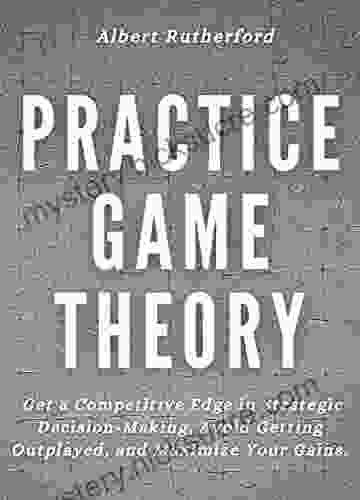
 Simon MitchellGet a Competitive Edge in Strategic Decision Making: Avoid Getting Outplayed...
Simon MitchellGet a Competitive Edge in Strategic Decision Making: Avoid Getting Outplayed... Dashawn HayesFollow ·19.7k
Dashawn HayesFollow ·19.7k Gabriel MistralFollow ·16.8k
Gabriel MistralFollow ·16.8k Todd TurnerFollow ·2.5k
Todd TurnerFollow ·2.5k Edward BellFollow ·12.9k
Edward BellFollow ·12.9k Ivan TurgenevFollow ·5.9k
Ivan TurgenevFollow ·5.9k Garrett BellFollow ·6.7k
Garrett BellFollow ·6.7k Allan JamesFollow ·12.3k
Allan JamesFollow ·12.3k Albert CamusFollow ·11.4k
Albert CamusFollow ·11.4k

 Henry David Thoreau
Henry David ThoreauHow To Bake In Unique Way: Unleash Your Culinary...
Baking is an art form that transcends the...

 F. Scott Fitzgerald
F. Scott FitzgeraldAcademic Magic: Unveil the Secrets of The Last Magus
Delve into a Realm of...
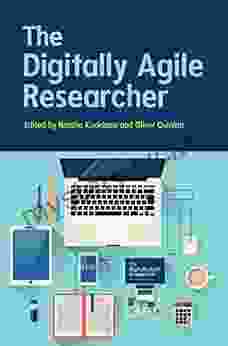
 John Green
John GreenThe Digitally Agile Researcher in UK Higher Education:...
In the rapidly...
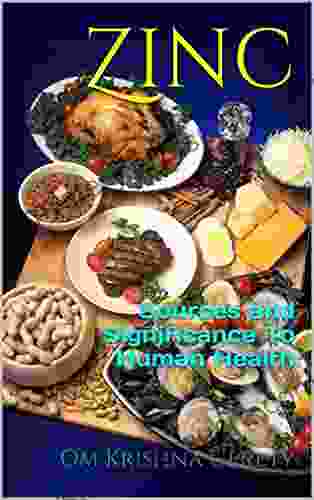
 George Orwell
George OrwellZinc: Sources And Significance To Human Health
Zinc, an essential trace mineral, plays a...

 Mario Simmons
Mario SimmonsToo Scared to Tell: A Harrowing and Thought-Provoking...
In the realm...
5 out of 5
| Language | : | English |
| File size | : | 5133 KB |
| Text-to-Speech | : | Enabled |
| Enhanced typesetting | : | Enabled |
| Word Wise | : | Enabled |
| Print length | : | 46 pages |
| Lending | : | Enabled |
| Screen Reader | : | Supported |
| Paperback | : | 172 pages |
| Item Weight | : | 10.2 ounces |
| Dimensions | : | 5.83 x 0.43 x 8.27 inches |


